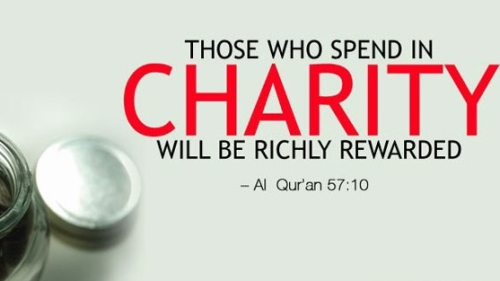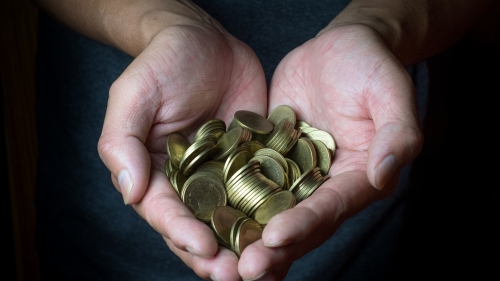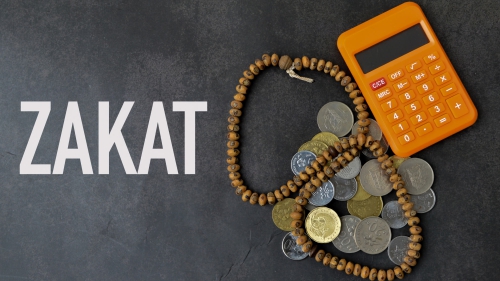Giving Makes You Rich

In John Bunyan's 1684 classic The Pilgrim's Progress, the character Old Honest poses this riddle to the innkeeper Gaius: "A man there was, tho' some did count him mad. The more he cast away, the more he had." Gaius solves the riddle thus: "He that bestows his Goods upon the poor shall have as much again, and ten times more."
Less poetically, the idea is this: Giving makes you rich. A lovely sentiment, to be sure, but quite backward-sounding to an economist. You obviously have to have money before you can give it away, right? Or in the pithy words of former British prime minister Margaret Thatcher, "No one would remember the Good Samaritan if he'd only had good intentions-he had money too."
Well, it turns out that Gaius was right, and new economic research backs him up. Emerging evidence-crunchy statistics from real data, not the mushy self-help stuff-supports the contention that giving stimulates prosperity, for both individuals and nations. Charity, it appears, can really make you rich.
The United States is a remarkably charitable nation. The Giving U.S.A. Foundation estimates that Americans donated nearly $300 billion to charity in 2006-more than the gross domestic product (the annualized value of goods and services produced within a nation) of all but 33 countries in the world. More than three-quarters of this came from private individuals. Additional research suggests that between 65 and 85 percent of Americans give to charities each year.
How does all this generosity relate to our high average levels of prosperity? Let's begin with individuals and families. The Social Capital Community Benchmark Survey, completed in 2000, is a survey of about 30,000 people in more than 40 communities across the U.S. and is the best single source of data available on the civic participation of Americans. The S.C.C.B.S., which takes into account differences in education, age, race, religion, and other personal characteristics, shows that people who give charitably make significantly more money than those who don't. While that seems like common sense, it turns out that the link in the data between giving and earning is not just one-way. People do give more when they become richer-research has shown that a 10 percent increase in income stimulates giving by about 7 percent-but people also grow wealthier when they give more.
How do we know this? When two variables like giving and income are interrelated, economists use something called an instrumental variable to see which is pushing and which is pulling. In a nutshell, that means selecting something that's closely related to donations but not directly to income, like volunteering. Volunteers tend to be money givers and vice versa because of the same charitable impulse. But income doesn't always directly affect volunteering. (While people have differing amounts of money, they all have the same amount of time.)
We start by predicting how much money people would donate based on how much they volunteer, regardless of income. This projection essentially strips out the role of income in giving. Next, see if that predicted donation level correlates with income. If it does and the correlation is positive, it means that giving pushes up income and not just vice versa.
This is precisely what is found in the S.C.C.B.S. data: More giving doesn't just correlate with higher income; it causes higher income. And not just a little. Imagine two families that are identical in size, age, race, education, religion, and politics. The only difference is that this year the first family gives away $100 more than the second. Based on my analysis of the S.C.C.B.S. survey, the first family will, on average, earn $375 more as a result of its generosity.
How can this be? Is it a statistical anomaly-or even a metaphysical phenomenon? While the link between giving and prosperity is not as mechanistic as returns on municipal bonds, there are some very earthbound explanations for it. Psychologists and neuroscientists have identified several ways that giving makes us more effective and successful. For example, new research from the University of Oregon finds that charity stimulates parts of the brain called the caudate nucleus and the nucleus accumbens, which are associated with meeting basic needs such as food and shelter-suggesting to the researchers that our brains know that giving is good for us. Experiments have also found that people are elevated by others into positions of leadership after they are witnessed behaving charitably.
The financial advantages of giving aren't limited to individual givers. There is also evidence that donations push up income even more at the level of an entire nation's economy. We can demonstrate this by looking at average household charity and per capita G.D.P. as they change over time. Charity and G.D.P. levels have moved together over the years. Corrected for inflation and population changes, U.S. government data show that G.D.P. per person in America has risen over the past 50 years by about 150 percent. At the same time, donated dollars per person have risen by about 190 percent.
These trends by themselves don't tell us which force is pushing and which is pulling, however. To figure that out, we need to determine whether past values of one affect future values of the other. By using a method called vector autoregression, economists can see how changes in this year's G.D.P. are affected by past values of both G.D.P. and charity. If an increase in last year's charity levels correlates with a jump in this year's G.D.P., it is logical to conclude that donating is stimulating the economy.
As in the case of individual income, the evidence is that increases in G.D.P. and giving mutually reinforce each other: Economic growth pushes up charitable giving, and charitable giving pushes up economic growth. Data from the Statistical Abstract of the United States and the Center on Philanthropy at Indiana University provide examples: In 2004, $100 in extra income per American drove about $1.47 in additional charitable giving per person. At the same time, $100 in giving stimulated more than $1,800 in increased G.D.P. This rate of social return shows that economic-multiplier effects are not limited to private investment. In short, giving plays a positive role in American economic growth. It is a good investment for our country. Some might even go so far as to say that donating to charity is a patriotic act.

















